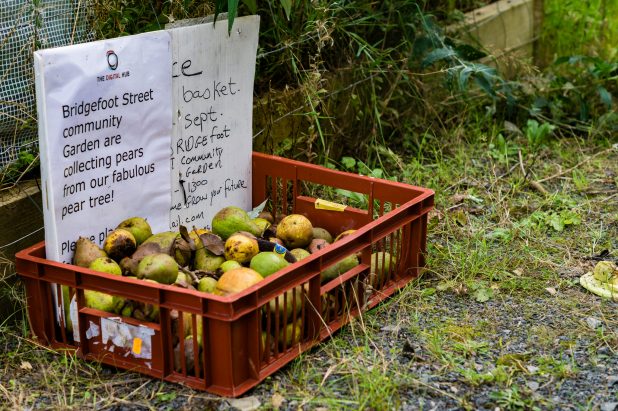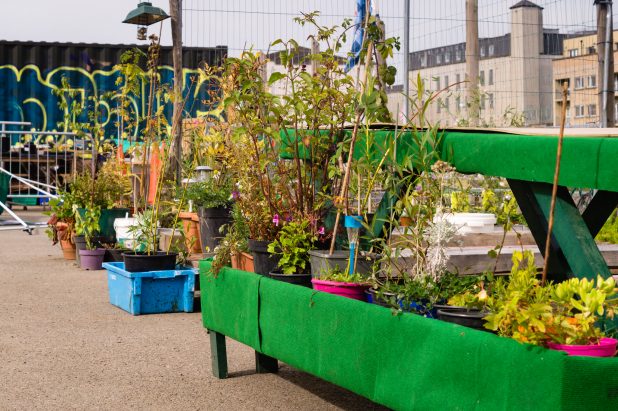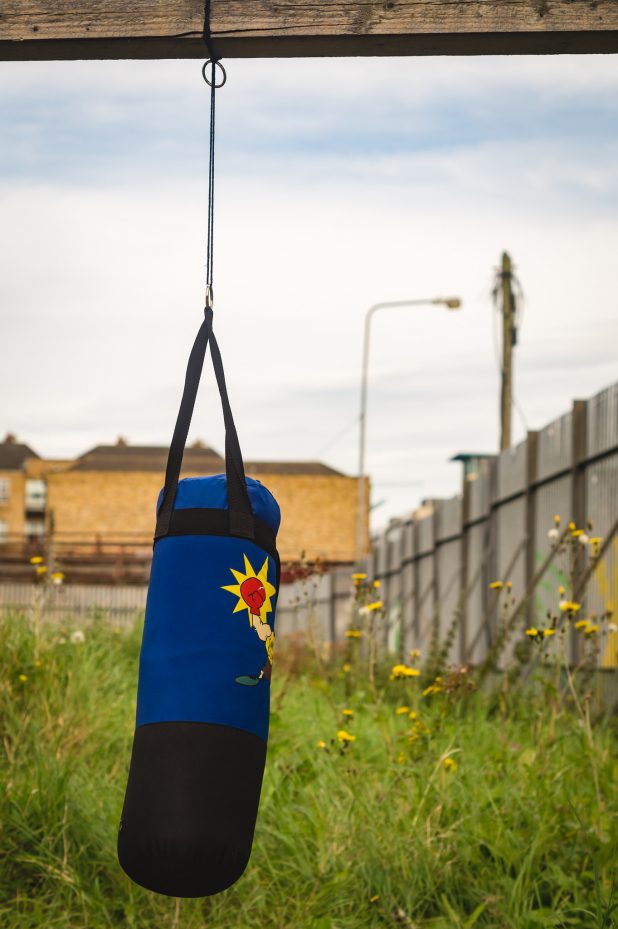In the desert of concrete that is Dublin City, the garden in Bridgefort Street is surely an oasis. Not only because of its verdant visage, but also because it has acted as a vehicle that can sustain a community. This reporter visited the garden today, spoke with those involved in maintaining it and integrating it with other community initiatives, and unfortunately learned that it soon to be closed.
The garden as it exists today had something of a turbulent journey getting there. Initially coming into existence in 2006, with over 80 allotments, the garden struggled with an overall lack of community cohesion. Falling into disrepair, and being a casualty of the recession in 2008, it wasn’t until 2015 that the garden had a rebirth.
Speaking today with Richard Taplin, a local resident and driving force in the garden, I learned that the garden is a one hundred per cent a local community initiative. And it is a testament to the effort of guys like Richard that the garden has become so successful. Initially when the community gained custody of the garden they found that the all the soil needed to be replaced and the previous allotment system had created a shortage of space. Since then, they have replaced the soil, and operate allotment provision far more efficiently. Richard pointed out that over 250 people have engaged with the garden, availing of schemes such as “Grow It Yourself” (which aims to educate those with no gardening experience about growing vegetables/fruits). Also companies such as Google and the Digital Hub have organised team building events in the garden.
Not only has the garden been a success in and of itself, it has also linked up with other community-based projects. For example the garden has worked with a group called Men’s Shed. Men’s Shed aims to bring men together in an environment where they can work on projects, chat, and stay engaged with the wider community. Members of the local Men’s Shed grew pears in the garden. Then they used those pears, to create chutney which was served at a local charity event. Other initiatives that operate from the garden include the “Repair Cafe” which tries to foster a more sustainable society by having people bring items that are broken to the cafe to be fixed rather than throwing them out. It also gives people the opportunity to learn new skills. And every Friday the gardeners go rowing up at Islandbridge
During the month of October those active in the garden will be involved a numerous projects. For example every Thursday and Saturday, the gardeners will operate a “Library of Things”. Essentially, a Library of Things is a place where people can bring items for others to borrow, and in turn can borrow items that others have brought. And for Mental Health Week (October 16th-20th) they will be hosting “Roll out the Barrel”. Harkening back to a Dublin of old, the gardeners will bring around a Barrel to act as a stage of sorts. Those at the stage can sing a song, narrate a story or tell a few jokes. The goal is to build confidence and to instill that confidence in others by being supportive whilst they do their party piece.
Sadly though, on the day I was up at the garden Richard had told me he had just received an email from Dublin City Council that the garden would be closed this December as part of the council’s plan to refurbish the garden and the park beside it. Ronald Reagan once said that the nine scariest words in the English language are “I’m from the government, and I’m here to help”. And when you look at the garden in Bridgefort St, it’s easy to see why. While one can’t doubt the sincerity of Dublin City Council’s plan for refurbishment, one can’t help but recognise the problems in such a plan.
A community is like any other ecosystem. It relies on continuity and stability. This is especially so when a community project is relatively new. By closing the garden so abruptly, with little time given to the gardeners to plan for an alternative, Dublin City Council in their haste have put at risk the great benefits that the garden has brought. Even if the refurbishment stays on track without delays, and it is a huge if, the inherent centralisation of Council organisation will not serve the community well. Indeed, it is the anarchic nature of the garden that has made it successful. Locals, unimpeded by faceless clipboard box tickers, have been able to manage the garden in such a way that ensures it meets the often intangible needs of a modern urban community. There is no box to tick for the guy looking to build his confidence by singing a song in public. There is no box to tick for the former addict to come down to tend to his plants rather than relapse. There is no box to tick for the person with no DIY experience to learn how to fix stuff at the repair cafe. Richard summed up the issue really well. While recognising the importance of refurbishment, he said “there is no point in throwing the baby out with the bath water”. Regardless of what happens though, Richard, and people like him will continue to try and make the community a better place.
Photos by Stepehen Davis















